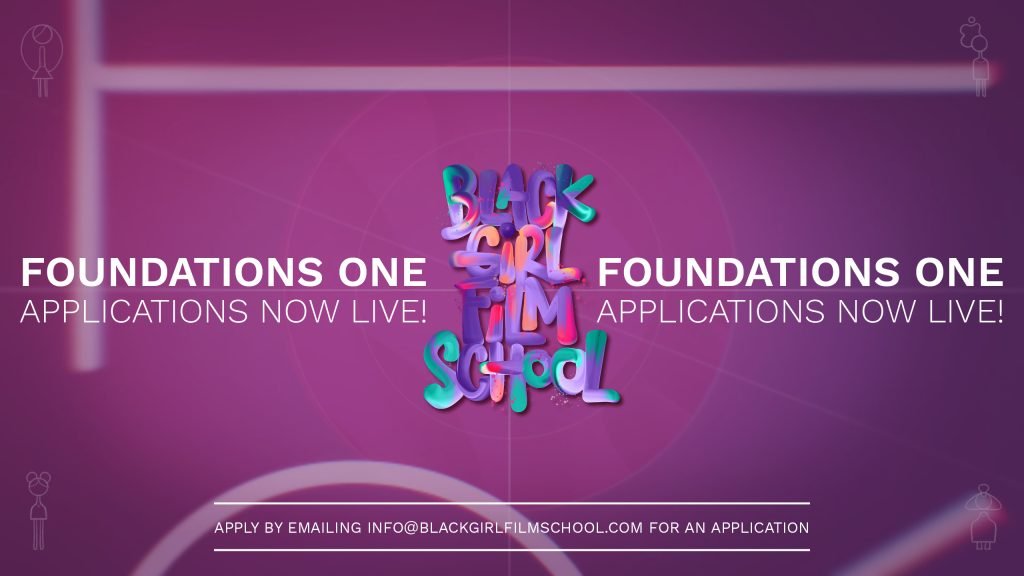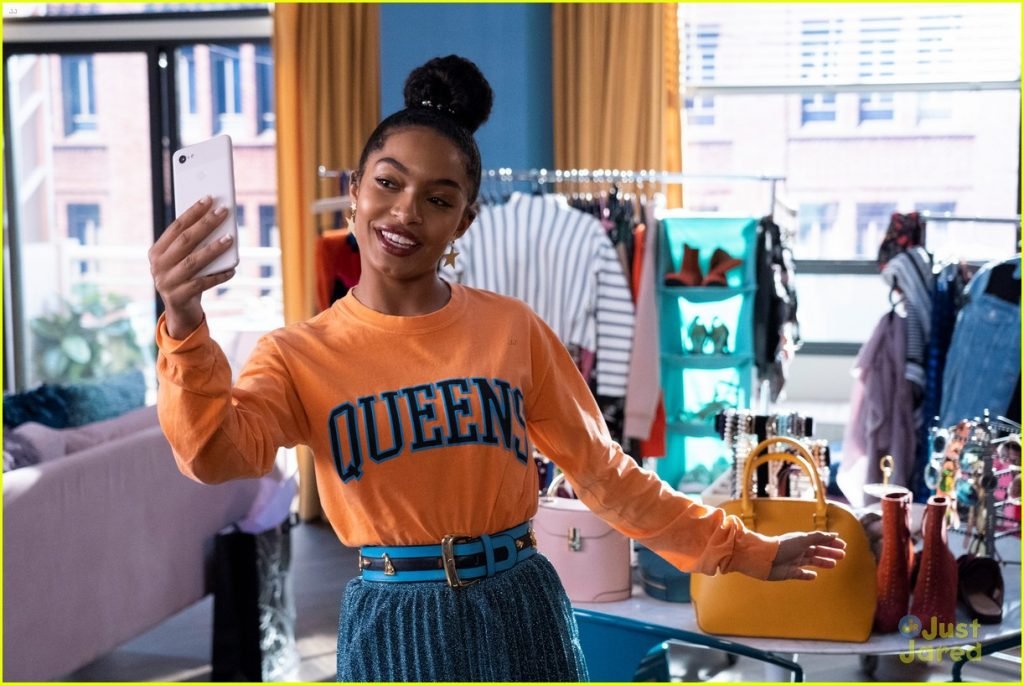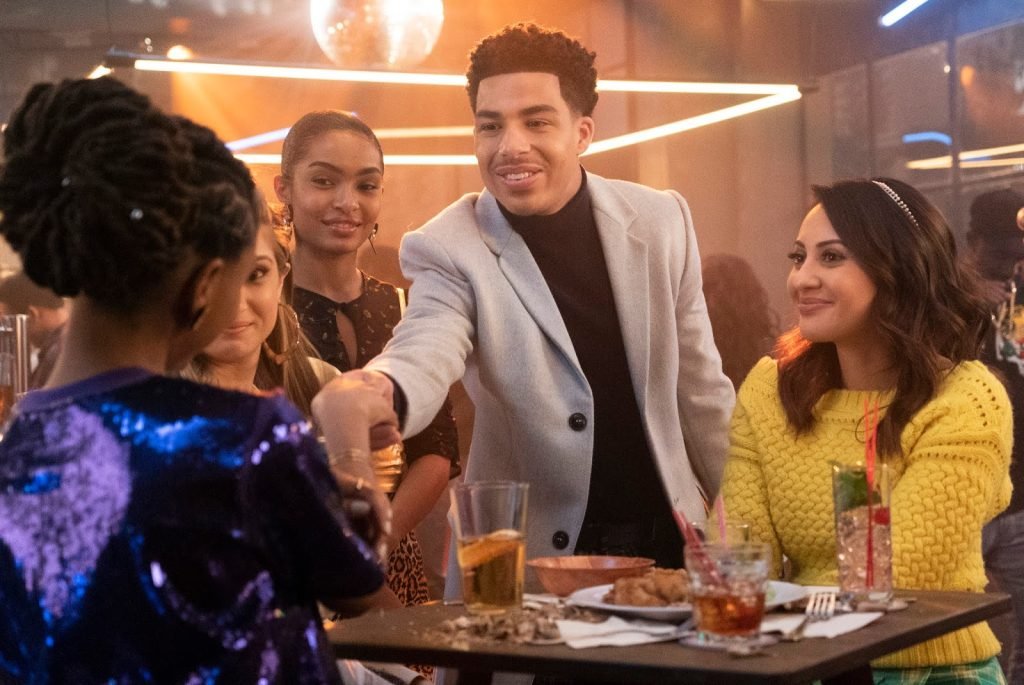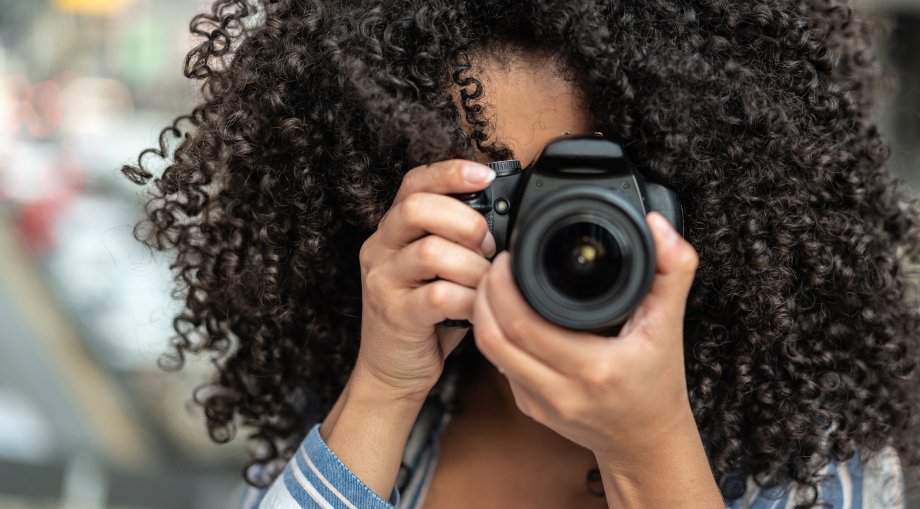Talking with the Woman Behind BLACK GIRL FILM SCHOOL
from Medium
By: Michael Atkinson
Interview by: Valeriya Golovina
Meet Jayda Imanlihen, the founder of Black Girl Film School, a non-profit education foundation with the goal of increasing the number of Black women working in the industry above and below the line. Drawing upon her 10+ years of experience designing graduate online programs from the ground up for elite private universities across the country, Jayda currently also serves as the Director of Multimedia Design & Production for the University of Southern California’s Bovard College.
Black Girl Film School has been hosted by Smashcut since Fall 2020. The course introduces students to elements of film production and the work of award winning Black female filmmakers, and connects them with experts in the industry. Students have joined the course from everywhere between New Jersey and Alabama to Lagos, Nigeria.
By second grade I knew I was a storyteller (Bloom, a short of m
When did you discover your passion for filmmaking? Were you able to explore your creative interests growing up?
ine in the BGFS orientation, is my visual story about this). At that age I already knew the power of representation in media and could identify places where I did not see myself in film and television. At a very young age, I was able to explore my imagination through reading and writing. I was able to read very early at like 3 years old because I have a sister 4 years older than me and she read a lot and liked to play school. I read whatever she finished, which is how I began reading Judy Blume and V.C Andrews way earlier than I probably should have. Reading about different types of women and these grand worlds grew my imagination and vocabulary exponentially during such a formative period. But I did not see myself represented in the same range of experiences or complexity as my white friends, even as adolescents. The movie theatre was one place my mom allowed me to go alone with friends and it was always disheartening to experience that amongst my group of mainly white girlfriends. There was no on screen identity for me as a black girl to emulate.
How has studying film at university (for instance, pursuing an MFA at Columbia) helped your career?
At the core of all my educational pursuits is access. I would say yes, film school has definitely helped advance my career. I gained a sense of digital and visual literacy right away at Columbia University and going to film school makes you part of a community that people assume are trained in a certain way so they are more likely to hire you or bring you in on a project because of this foundational training.
What has been your experience like working in the film industry, and how did that influence your vision for BGFS?
I rarely see any other Black women in addition to myself when I’m on set in leadership positions. As an executive I have to actively work to bring new people to the table. I also see a lack of Black women participating in technical roles like the camera department. As the Executive Director of BGFS, I really strive to create an academy of digital literacy that demystifies film education and training while providing a tangible pathway toward sustained employment in the film industry.
At the Michelle Obama School of the ARTS and Leadership (2019), teaching a seminar about “Storytelling Images” for 8th-grade girls.
Over the last years a lot has been reported about gender inequity in the industry — Black women represent only 3% of workers. We also hear a lot of producers and H.o.D.s (speaking from my own experience) say that it’s difficult to find women, and women of color, to fill the roles on crews. What do you think needs to change for underrepresented filmmakers to get into those positions and for producers to stop using their “non-existence” as an excuse?
There’s a pipeline issue preventing Black women from participating fully and leading in the film, tv and media industries. From the lack of Black women teaching film as professors to the lack of Black women making hiring decisions on productions, to the lack of Black women working in departments that require technical skills — from start to finish, there is no intentional value placed on learning from black women in film, hiring black women in film, or providing pathways for black women to advance in the industry once they’ve gained entry. Our BGFS curriculum is attractive to Black girls and women from 8th grade through their 40s because it is rare to find a learning experience specifically centered on the experience and expertise of Black women in film that is not only about diversity, equity, inclusion or racism.
We’ll continue to get the “non-existence” excuse until we pay attention to the entire pipeline and how black women are systematically excluded and not perceived as bringing value to film organizations and institutions. But we know from the McKinsey report that it is in fact financially beneficial to the entire industry to hire more black women behind the camera.
What role has mentorshiped played in your filmmaking journey?
One of the students from our first cohort in 2020 was offered admission to Stanford University’s MFA Film program in Documentary. She was one of seven students offered admission to that very selective program this year. She had never taken a formal film class before Black Girl Film School: Foundations 1. The reality from this experience is that learning from black female film experts has value and our leadership and perspectives will continue to impact the industry.
How did you start teaching and what had drawn you to it?
I’m a first generation college graduate. I think it is ingrained in us that the journey is not for us alone. At my core, I’ve always been intrigued by how things work. How do projects come together and how do you know which people to bring on board to get it done at the highest level? After I graduated film school and had two films as a producer compete at the Sundance Film Festival, I knew I had a wealth of experience I could share with other women who might be dealing with the same obstacles I did. There were so many learning opportunities I wish I could have experienced when I was younger but they were simply not designed for my participation or within the budget of our family. I teach because I want to give away as much knowledge for free as I can.
When did you decide to start your non-profit BGFS and what helped you to overcome challenges in running it?
I decided to start BGFS in 2016 because I noticed a lack of representation in the online higher ed community where I directed multimedia strategies for online graduate programs. I knew that the online learning space was ripe for storytelling and a way to reimagine film school without all the cost and barriers of access. I almost couldn’t accept my offer to Columbia University’s MFA program because of the exorbitant tuition. I worked to bring partners to the table who could support us in developing a high quality learning experience for minority students to learn filmmaking. The Mill continues to support the development of our learning films and graphics packages as a partner which is important to our teaching methodology.
You started BGFS in 2016 and in the fall of 2020 you delivered it fully online via Smashcut. What’s your biggest take away from running the course 100% remotely and what are your thoughts on the future of online film education being able to provide inclusive learning?
We know BGFS works from curriculum design to delivery and we did not have to be in a physical space together to learn together. Before connecting with Smashcut, we were delivering our programs with a mobile app because we felt that was how our demographic was creating and consuming films. Above all, we’ve re-imagined film school for a group that is traditionally excluded from even dreaming of learning in this way. We do some things better online than we do in person, like script review or leaving video notes on a course video to share our reflections. Online allows for dynamic, multimedia-infused discussions that I think are not leveraged as well in an in-person experience.
When did you realize that online education would be the new frontier capable of amplifying voices of minority women?
I had an insider’s perspective about what it took to develop and design a quality online experience from my previous work in higher ed, and I knew if we could build it they would come. I also knew how much universities profited from online programs and I knew the kinds of the students who could afford to pay for the experience. It was all another way to exclude participation from underserved communities. I wanted to flip that and show that there are many things you can do in an online classroom that you cannot do in a physical space when you’re teaching film, and then we went from there.
What are your thoughts on remote film courses and platforms like Smashcut? How has the pandemic and remote teaching changed your approach if at all? Do you think it gave more flexibility for your students to try film who wouldn’t do it otherwise?
At BGFS we meet the learner right where they are and the Smashcut platform supports our mission and ethos. It is important to be able to discuss media in a robust way. So to be able to view the same high quality media files at the same time without having to refresh or wait while things load has been a game changer. We have not been able to use the crew hub feature with our past cohorts, but we look forward to utilizing that tool in the future because it is another way to build community, which is foundational to online learning.
What is the selection process like for students?
There’s a comprehensive application process to help us determine your skill level, interest and digital literacy competencies. From there a committee evaluates candidates and their supporting materials to make recommendations for the final selections. We also accept referrals, but all interested candidates must complete the application process to be considered.
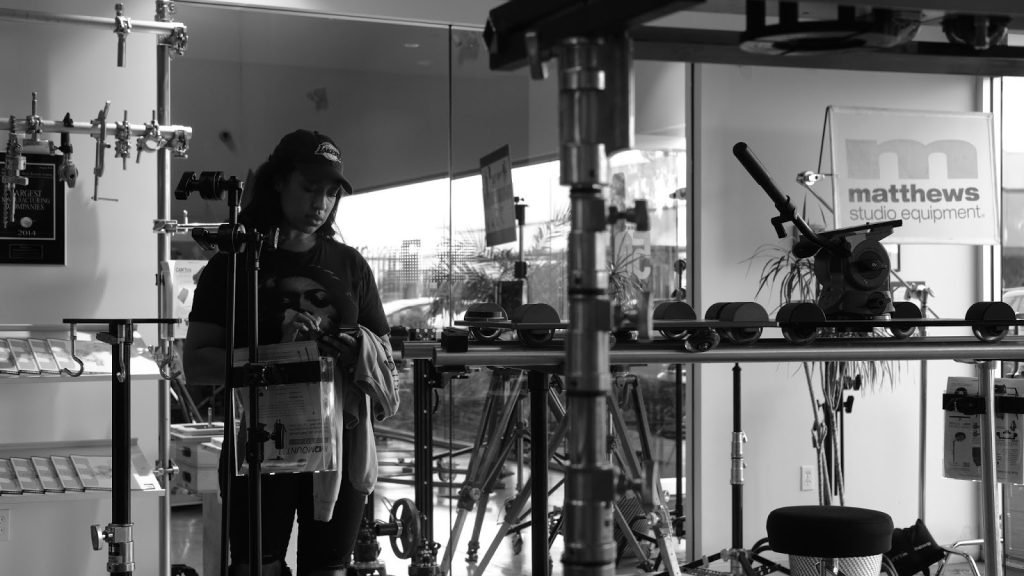
Do you advise your students who want to write or direct to hone technical skills, too? What do you think can help to inspire more women to pursue technical positions?
A big part of our model is to have students who matriculate through our curriculum earn a technical certification before graduating from college. We think we can get more black girls on set in positions like 2nd AC, DIT, and camera assistant in other camera department roles in this way.
Where are you setting your sights on next and do you have any plans for getting more Black women into your courses globally? For instance, I know that there are many Black girls in Nigeria, Tanzania, other parts of the world, looking for access to film education.
We hope to have BGFS Foundations II in place for fall which will expand on the learning outcomes of Foundations I, but with a heavy emphasis on technical application. But we are in need of more partnerships and sponsors to supply the equipment that will be needed for us to really dig into learning camera and technical exercises with the camera. We had one student in our inaugural cohort from Lagos who attended every live session and was such a motivated young filmmaker. We’d love to be more intentional with expanding to black girls globally in places like Nigeria and Tanzania where girls are looking for access to a film education. With more partnerships and aligning with like-minded organizations, we can get more black girls educated and hired for sustainable work in the industry.
What would be your advice to other people and especially women around the world looking into starting their own initiatives focusing on underrepresented communities and diversity and inclusion within the film and entertainment world?
Find a need and fill it. Don’t be discouraged by bigger, more established organizations, girls need us all.
Resist the urge to want to do everything and instead find a specific need and address it with your mission, resources and opportunities to learn. The community will build itself in an organic way. You are defined every bit by what you do as much as what you don’t do. Just as there are specializations in the film industry, organizations should define their mission statement to address a specific need and go from there.
And don’t be afraid to evaluate with surveys, assessments, reflections and advisory panels because you want to know that what you’re putting so much effort into is actually achieving the desired outcome.
What skills do you see being important to filmmakers especially in the current landscape and remote work?
I believe that digital literacy is the critical foundation for future storytellers. We do all have a heavy social responsibility to consider in whatever we put out into the world as filmmakers, but the more we can train filmmakers to feel confident to use the technology in an intentional way, to create the work that speaks to their truth, then the industry will continue to open up and make space for new and different perspectives and ideas
On set in downtown Los Angeles with my husband Phillip Imanlihen (2020).
How do you see the film industry changing right now? What about the film education industry?
Until Black women make up more than just 3% of professors teaching at US colleges it will be difficult to recruit underrepresented students to learn and gain the skills needed to change the industry. That being said, post-COVID-19, the landscape for education is changing and we are hopeful that some of the barriers that prevent black women wanting to learn technical expertise in the film industry are being broken down, now that we all must reimagine what a learning experience and environment looks and feels like.
With French director/screenwriter Maimouna Doucoure at 2020 ARRAY HQ event in Los Angeles (pre-COVID)
What’s some advice you have for aspiring women filmmakers?
I’d say, don’t feel like you have to tell every story for every black person who ever lived. Your story is enough and it connects us all to the human experience. You can always find value in your own truth. Find the small kindling and let the fire grow from there.
Also, film is an art, but it is also a business. Find a way to carve out a technical expertise so you can become hireable while you work on the longer term development of your creative craft.
What are you currently working on? What other roles would you like to explore in the future if any?
In my personal development, I’m obsessed with writing, and with practicing visual composition through the camera. I’m learning what systems do what, how light moves, the quality and color of light and how all that informs the visual universe of projects. I enjoy set photography, capturing black women working and creating on set. In my writing, I love writing about dynamic mother-daughter stories that explore the complexities of relationships between the two, and what happens when the new generation steps outside of the boundaries set by the matriarch.
What film has truly inspired you and why?
There are many films that have inspired me over the years. Eve’s Bayou by Kasi Lemmons was the first time I realized all the things a director does to bring a story to life and I was in awe. Tokyo Story by Ozu made me understand composition, camera and directing talent movement on screen. The Secret Life of Bees helped me understand how a director motivates talent to bring a period film to life. Belle showed me that even within Black women in film there is diversity and history that must be recognized. Finally, as a thirty something executive director, anything by Ava DuVernay because she is the visionary that has found a way to harness the energy of her craft into masterful storytelling and thought leadership. And beyond Ava DuVernay, I’m most excited to see what Dee Rees does next.
*
Find out more about Black Girl Film School.

